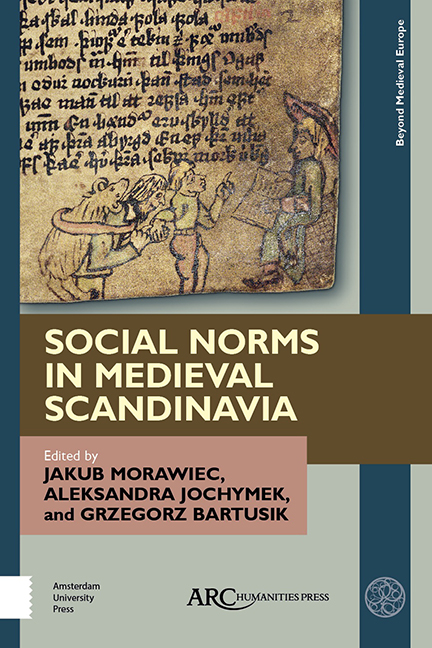Chapter 13 - Social Margins in Karlamagnús saga: The Rejection of Poverty
Published online by Cambridge University Press: 20 November 2020
Summary
THE EXTENSIVE COMPILATION of translated stories on Charlemagne and his peers known as Karlamagnús saga is not the first encounter of the Norse audience with the legend of the famous Christian king and emperor. However, as one of the translations of medieval French literature commissioned by King Hákon Hákonarson, Karlamagnús saga can be viewed as the first intentional and organized large-scale attempt at integrating elements of Carolingian tradition into Norse culture.
Within the corpus of medieval Norse adaptations of continental works, Karlamagnús saga provides a lengthy, vivid source material for the study of the translator's craftsmanship. The Saga af Agulando konungi is the longest of the existing Karlamagnús saga branches. It is based on the Latin Historia Karoli Magni et Rotholandi, often referred to as the Pseudo-Turpin Chronicle, along with the twelfth-century French epic poem Chanson d’Aspremont, a lengthy account of Charlemagne's war campaigns in Spain against the Muslims. Originally composed in France in the first half of the twelfth century, the Pseudo-Turpin Chronicle gained enormous popularity in the Middle Ages. In addition to surviving in a large number of Latin manuscripts, it was translated and adapted into numerous vernacular languages. The chronicle offers an eye-witness account of the Spanish wars fought by Charlemagne, told from the point of view of Turpin, the archbishop of Reims.
The chronicle found its way to Iceland in the early thirteenth century, probably as an independent work, although it is preserved in the Karlamagnús saga manuscripts. The narrative starts with Charlemagne's vision of St. James urging the Frankish king to liberate Spain from Muslim rule. Charlemagne then leads his host to Spain, conquering it city by city, castle by castle, and restoring Christiniaty by building new churches. Shortly after Charlemagne's return to France, Christianity in Spain is threatened anew: the African king Agulandus is taking the land by storm, tormenting Christians appointed there by Charlemagne. A war between Frankish and African hosts ensues. Charlemagne lays siege to the cities of Agen and Saintes while King Agulandus flees to Pamplona. Eventually Charlemagne meets with Agulandus and asks him to accept baptism and join the Christian faith. Agulandus agrees to convert, but only if his men are defeated in battle.
- Type
- Chapter
- Information
- Social Norms in Medieval Scandinavia , pp. 229 - 238Publisher: Amsterdam University PressPrint publication year: 2019



